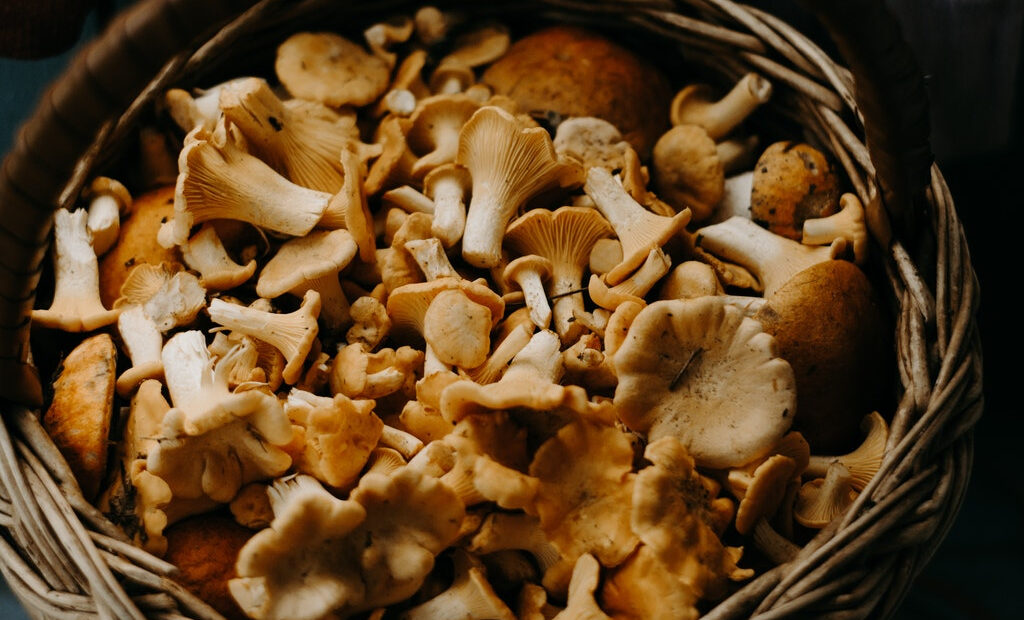How to naturally boost the immune system

Wild mushrooms are an important source of nutrition for impoverished communities the world over. Certain species of mushrooms like truffles are also highly sought-after delicacies for the well-heeled. The ancient Chinese consumed mushrooms up to 6,000 years ago, and the Egyptians are believed to have first eaten them 4,600 years ago. There are even accounts of mushrooms being consumed in Chile 13,000 years ago. In any event, this important food group has been on the radar for millennia, and, as it turns out, for good reason.
According to WebMD, mushrooms rank among a select group of low-calorie foods packed with nutritious elements. Among other things, they contain antioxidants, vitamins and minerals. Those exposed to UV light are also an important source of vitamin D, an essential component of a healthy immune system. Broadly speaking, heavy researchers concluded that mushrooms are an excellent food for promoting weight loss and maintaining a stable and healthy BMI, boosting the immune system with anti-inflammatory properties (by stimulating microphages) and lowering blood pressure through potassium.
But there’s so much more to mushrooms, such as their disease-fighting abilities. Some studies at this stage suggest mushrooms can impact cancer, diabetes and Alzheimer’s. Since mushrooms contain substantial amounts of magnesium, selenium, phosphorus, copper, and thiamine, and are low in fats, fibre and sugar, they are naturally included in many health-conscious recipes. The facts speak for themselves: mushrooms are fat-free, cholesterol-free, extremely low in sodium, and gluten-free. These are all known offenders in the modern diet. But it’s the benefits of eating mushrooms vis-à-vis the immune system that are important. In fact, mushrooms stand alone as a leading food that is rich in selenium – a powerful antioxidant. Selenium protects the body from chronic diseases by strengthening the immune system.
Various research studies done at the City of Hope cancer treatment and research centre discovered that mushrooms were highly effective at suppressing prostate and breast cancer growth in cultures. With prostate cancer, high PSA levels are extremely worrying, and mushrooms were linked to a reduction in PSA levels. With breast cancer, the efficacy of mushrooms was tested in terms of their cancer-inhibiting abilities. The naturally occurring enzymes in plants, phytochemicals, can block aromatase. This type of research is promising in the ongoing fight against serious diseases.
Which mushrooms are good for the immune system?
There are thousands, perhaps tens of thousands of different mushrooms on the planet, edible and toxic alike. According to Britannica, some 70 to 80 species of toxic mushrooms are fatal when ingested, and many of them look surprisingly similar to the edible species of mushrooms. Naturally, it’s important to avoid these, which include the death cap, destroying angels, webcaps, conocybe filaris, autumn skullcaps and similar. These are the varieties to avoid at all costs.
The medicinal mushrooms for the immune system are very different. These include Grifola frondosa (Maitake), Cordyceps militaris (Cordyceps), Trametes versicolor (Turkey Tail), Inonotus obliquus (Chaga), Ganoderma lucidum (Reishi) and Hericium erinaceus (Lion’s Mane) mushrooms. While the jury is still out regarding the manner in which they should be eaten, or whether they can be mixed, there is no denying their medicinal properties, and immune system boosting properties.
The main constituents of mushrooms with strong medicinal benefits include the following:
-
Turkey Tail – PSP, PSK
-
Maitake – grifolan, D-fraction, MD fraction
-
Cordyceps sinesis – adenosine, cordycepin
-
Reishi – ganoderic acid, danoderiol, lucidenic acid, GLPS
The cancer-fighting benefits of consuming medicinal mushrooms are currently being studied and increasingly accepted, since they stimulate cytokine production, the small soluble proteins or necessary mediators for immune responses to disease, illness and infection. The research study titled, Immune Modulation from Five Major Mushrooms: Application to Integrative Oncology found that, “…when considering immunomodulatory effects of mushrooms, those that stimulate TH1 responses may be beneficial in cancer treatment, as are those that decrease TH2 and Treg responses. Mushrooms that decrease inflammation may have the added benefit of decreasing fatigue, anxiety, and other symptoms by decreasing inflammatory cytokines.” Clearly, there is potential merit in medicinal mushrooms, and people are beginning to take notice.
The editorial unit




















Facebook
Twitter
Instagram
YouTube
RSS